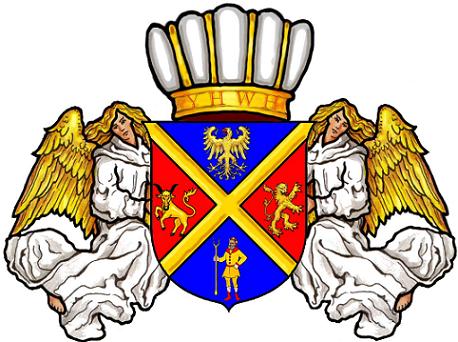
TCAWW Literature Bible Index
Christian History Books (click here)

|
IMPORTANT: Easton's Bible Dictionary is NOT exegetical, and can be counter to the scriptural or Hebrew and Greek definitions of words.
150 Years ago you couldn't be a Pastor anywhere in the world unless you were fluent in Hebrew..... Even in the so-called "Dark Ages" everyone had a local Priest who could speak, read and write in at least 2 languages, who taught out of a Latin Bible. How far have we fallen in word definitions! DO YOU BELIEVE THE WORD OF GOD OR BELIEVE IN THE OPPOSITE? *******Recommended Materials for In-Depth Research of Scripture********* Strong's Exhaustive Concordance, Complete and Unabridged (Every pastor uses or recommends this for their congregation) It's the main tool every Christian should have in their library along with a good Lexicon to get full definitions. Beware, using just Strong's alone without a Lexicon will not give you full definitions of many words since it's not meant to do the function of a Lexicon. You will need some of the following books to render in-depth research beyond the scope of Strong's Concordance: (Most of which are included in several computer programs such as PC Study Bible and online at HERE for FREE ACCESS) 1. The New Englishman's Greek Concordance and Lexicon of the New Testament, by Wigram-Green *These two books by Wigram-Green are what Strong's concordance is based upon. Every word in the bible is listed by (the original Greek and Hebrew)Strongs# rather than by English translation. You cannot miss the bible's definition of a word with this tool. You can see how the original word is used every time throughout the bible. This research tool makes any user blow away most any pastor these days.* 2. The New Englishman's Hebrew Concordance of the Old Testament, by Wigram-Green 3. Greek-English Lexicon of the New Testament by Thayers 4. Hebrew-Chaldee Lexicon to the Old Testament by Gesenius 5. Interlinear Greek and English by Berry 6. Young's Analytical Concordance to the Bible 7. Vine's Expository Dictionary of Old and New Testament Words Keyed to Strong's Reference Numbers You can also order the KJV "Hebrew Greek Key Study bible" which has built-in lexicons and Strong's numbering within the actual text of King James, or if you prefer you can also get it in New American Standard. (we reccomend King James Version) We know you can always use the bible as it's own lexicon and use the word to interpret the word, however, but these are shortcuts for all who are wise to make quick use of. Thank You for using our online searchable Strong's concordance and dictionary. You can get all these books at ANY Bible bookstore and most major bookstores. Or order from us right now click here The first keys are finding what the bible's definition of a word is in scripture, not in 21st Century word definitions or MAJORITY Religious Doctrines in the broad path which leadeth to destruction. These tools help you see how the original word is used through the entire text of scripture, thus render the BIBLE'S Definition of a word since we live by Every Word and not by bread alone. Easton's (UnBiblical and sometimes FALSE) Bible Dictionary
|
Hemath A Kenite (Ch1 2:55), the father of the house of Rechab.
Hemlock (1.) Heb. rosh (Hos 10:4; rendered "gall" in Deu 29:18; Deu 32:32; Psa 69:21; Jer 9:15; Jer 23:15; "poison," Job 20:16; "venom," Deu 32:33). "Rosh is the name of some poisonous plant which grows quickly and luxuriantly; of a bitter taste, and therefore coupled with wormwood (Deu 29:18; Lam 3:19). Hence it would seem to be not the hemlock cicuta, nor the colocynth or wild gourd, nor lolium darnel, but the poppy so called from its heads" (Gesenius, Lex.). (2.) Heb. la'anah , generally rendered "wormwood" (q.v.), Deu 29:18, Text 17; Pro 5:4; Jer 9:15; Jer 23:15. Once it is rendered "hemlock" (Amo 6:12; R.V., "wormwood"). This Hebrew word is from a root meaning "to curse," hence the accursed.
Hen Common in later times among the Jews in Palestine (Mat 23:37; Luk 13:34). It is noticeable that this familiar bird is only mentioned in these passages in connection with our Lord's lamentation over the impenitence of Jerusalem.
Hena One of the cities of Mesopotamia destroyed by sennacherib (Kg2 18:34; Kg2 19:13). It is identified with the modern Anah, lying on the right bank of the Euphrates, not far from Sepharvaim.
Henadad Favour of Hadad, the name of a Levite after the Captivity (Ezr 3:9).
Henoch See ENOCH.
Hepher A well or stream. (1.) A royal city of the Canaanites taken by Joshua (Jos 12:17). (2.) The youngest son of Gilead (Num 26:32; Num 27:1). (3.) The second son of Asher (Ch1 4:6). (4.) One of David's heroes (Ch1 11:36).
Hephzibah My delight is in her. (1.) The wife of Hezekiah and mother of king Manasseh (Kg2 21:1). (2.) A symbolical name of Zion, as representing the Lord's favour toward her (Isa 62:4).
Herb (1.) Heb. 'eseb , any green plant; herbage (Gen 1:11, Gen 1:12, Gen 1:29, Gen 1:30; Gen 2:5; Gen 3:18, etc.); comprehending vegetables and all green herbage (Amo 7:1, Amo 7:2). (2.) Yarak , green; any green thing; foliage of trees (Kg2 19:26; Psa 37:2); a plant; herb (Deu 11:10). (3.) Or, meaning "light" In Isa 26:19 it means "green herbs;" in Kg2 4:39 probably the fruit of some plant. (4.) Merorim , plural, "bitter herbs," eaten by the Israelites at the Passover (Exo 12:8; Num 9:11). They were bitter plants of various sorts, and referred symbolically to the oppression in Egypt.